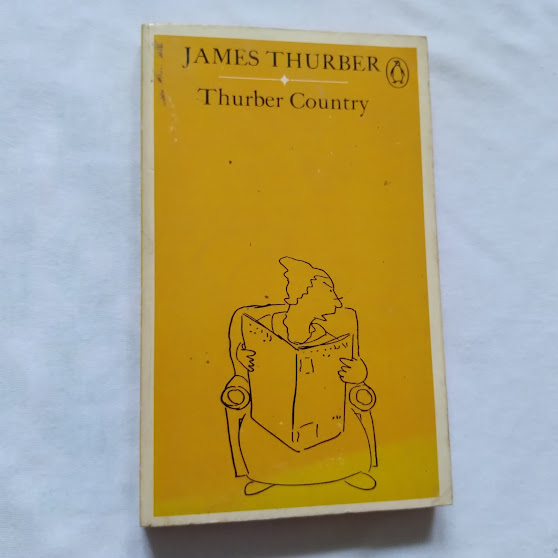Thurber writes:
"I have established a few standing rules of my own about humor, after receiving dozens of humourous essays and stories from strangers over a period of twenty years.
(1) The reader should be able to find out what the story is about.
(2) Some inkling of the general idea should be apparent in the first five hundred words.
(3) If the writer has decided to change the name of his protagonist from Ketcham to McTavish, Ketcham should not keep bobbing up in the last five pages. A good way to eliminate this confusion is to read the piece over before sending it out, and remove Ketcham completely. He is a nuisance. (4) The word ' I'll' should not be divided so that the 'I' is on one line and ' 'll' on the next. The reader's attention, after the breaking up of ' I'll', can never be successfully recaptured.
(5) It also never recovers from such names as Ann S. Thetic, Maud Lynn, Sally Forth, Bertha Twins, and the like.
(6) Avoid comic stories about plumbers who are mistaken for surgeons, sheriffs who are terrified by gunfire, psychiatrists who are driven crazy by women patients, doctors who faint at the sight of blood, adolescent girls who know more about sex than their fathers do, and midgets who turn out to be parents of a two-hundred-pound wrestler."
Other rules that Thurber discussed in the article:
1. I have a special wariness of people who write opening sentences with nothing in mind, and then try to create a story around them.
2. Nocturnal urges to get out of bed and write something humourous should be strongly resisted. The woman who springs up, lights the light, wakes up her husband, and starts 'writing it out' is not only a nuisance, but is almost certainly labouring under the common illusion of the sleepy that the commonplace is remarkable. These night pieces are usually dashed off in less than twenty minutes, and when written by the female, seem to grow out of the conviction that writing late at night lends a special magic to prose, like writing in a rose arbor or on a houseboat.
3. Since I was twelve, I have had an antipathy to ladies or gentlemen who write comic stories in baby talk, Deep Southern dialect, or other exasperating lingos, or whose characters lisp, or stammer, or talk like Red Skeleton. I am also distinctly cool to writers who try to interest me in tribal dialect, African, Mayan, or American Indian.
The other pieces in the anthology Thurber Country:
1. The Figgerin' of Aunt Wilma
2. The White Rabbit Caper
3. Back Home Again
4. My Own Ten Rules for a Happy Marriage
5. What a Lovely Generalization!
6. The Interview
7. Lady in a Trap
8. File and Forget
9. The Case Book of James Thurber
10. The Case of Dimity Ann
11. Look at That Darling Thing!
12. Do You Want to Make Something Out of It?
13. Take Her Up Tenderly
14. The Girls in the Closet
15. A Final Note on Chanda Bell
16. There's a Time for Flags
17. A Friend of the Earth
18. The American Literary Scene
19. Teacher's Pet
20. Shake Hands with Birdey Doggett
21. What Cocktail Party?
22. Joyeux Noel Mr. Durning
23. See No Weevil
24. The Pleasure Cruise, and How to Survive It

